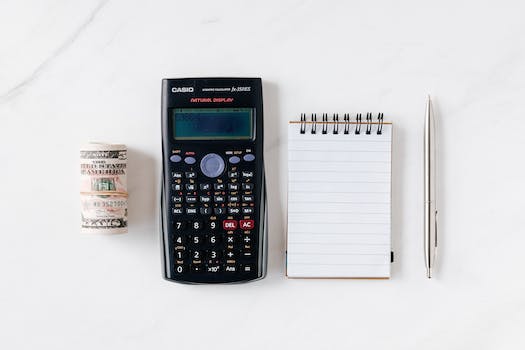How To Budget And Save Money
“Master the art of budgeting and saving for a financially secure future.”
Introduction
Introduction: Budgeting and saving money is an essential skill that everyone should learn. It helps you to manage your finances effectively and achieve your financial goals. In this article, we will discuss some practical tips on how to budget and save money. By following these tips, you can take control of your finances and build a secure financial future.
10 Simple Tips for Creating a Budget
Budgeting and saving money can be a daunting task, but it is essential for financial stability and achieving your financial goals. Creating a budget is the first step towards managing your finances and saving money. Here are ten simple tips for creating a budget that works for you.
1. Determine your income
The first step in creating a budget is to determine your income. This includes your salary, bonuses, and any other sources of income. It is essential to have an accurate estimate of your income to create a realistic budget.
2. Track your expenses
The next step is to track your expenses. This includes all your monthly bills, such as rent, utilities, and groceries. It is also important to track your discretionary spending, such as eating out, entertainment, and shopping. Tracking your expenses will help you identify areas where you can cut back and save money.
3. Categorize your expenses
Once you have tracked your expenses, categorize them into fixed and variable expenses. Fixed expenses are those that remain the same each month, such as rent and car payments. Variable expenses are those that can change from month to month, such as groceries and entertainment.
4. Set financial goals
Setting financial goals is an essential part of creating a budget. Determine what you want to achieve financially, such as paying off debt, saving for a down payment on a house, or building an emergency fund. Having specific financial goals will help you stay motivated and focused on your budget.
5. Create a budget plan
Using the information you have gathered, create a budget plan. Start by allocating your income to your fixed expenses, such as rent and utilities. Then, allocate money to your variable expenses, such as groceries and entertainment. Finally, allocate money towards your financial goals, such as paying off debt or saving for a down payment on a house.
6. Use a budgeting tool
There are many budgeting tools available to help you create and manage your budget. These tools can help you track your expenses, set financial goals, and monitor your progress. Some popular budgeting tools include Mint, YNAB, and Personal Capital.
7. Review and adjust your budget
It is important to review and adjust your budget regularly. This will help you stay on track and make any necessary changes. Review your budget monthly and adjust it as needed to ensure that you are meeting your financial goals.
8. Cut back on expenses
Cutting back on expenses is an effective way to save money. Look for areas where you can reduce your spending, such as eating out less, canceling subscriptions you don’t use, and shopping for deals on groceries and household items.
9. Increase your income
Increasing your income is another way to save money. Consider taking on a side hustle or asking for a raise at work. Increasing your income will give you more money to allocate towards your financial goals.
10. Stay motivated
Staying motivated is key to sticking to your budget and achieving your financial goals. Celebrate your successes along the way, and don’t get discouraged if you have setbacks. Remember that creating a budget and saving money is a journey, and it takes time and effort to achieve your financial goals.
In conclusion, creating a budget and saving money is essential for financial stability and achieving your financial goals. By following these ten simple tips, you can create a budget that works for you and start saving money today. Remember to stay motivated, review and adjust your budget regularly, and celebrate your successes along the way.
The Importance of Tracking Your Expenses

Budgeting and saving money can be a daunting task, but it is essential for financial stability and achieving your financial goals. One of the most important steps in budgeting and saving money is tracking your expenses. By tracking your expenses, you can identify areas where you can cut back and save money.
Tracking your expenses involves keeping a record of all your spending, including bills, groceries, entertainment, and other expenses. You can use a spreadsheet, a budgeting app, or a pen and paper to track your expenses. The key is to be consistent and record every expense, no matter how small.
One of the benefits of tracking your expenses is that it helps you identify where your money is going. You may be surprised to find that you are spending more on certain things than you thought. For example, you may be spending more on eating out than you realized. By identifying these areas of overspending, you can make adjustments to your budget and save money.
Another benefit of tracking your expenses is that it helps you stay accountable to your budget. When you see how much you are spending in each category, you can compare it to your budget and make adjustments as needed. This helps you stay on track and avoid overspending.
Tracking your expenses also helps you plan for the future. By knowing how much you are spending in each category, you can make informed decisions about where to cut back and where to allocate more money. For example, if you see that you are spending a lot on entertainment, you may decide to cut back and allocate more money towards savings or paying off debt.
To make tracking your expenses easier, you can use tools like Mint or Personal Capital. These apps connect to your bank accounts and credit cards and automatically categorize your expenses. This saves you time and makes it easier to see where your money is going.
In addition to tracking your expenses, it is important to set financial goals. This could be saving for a down payment on a house, paying off debt, or building an emergency fund. By setting goals, you have something to work towards and can stay motivated to save money.
To achieve your financial goals, it is important to create a budget. A budget is a plan for how you will spend your money each month. It should include all your expenses, including bills, groceries, entertainment, and savings. Your budget should also include your financial goals, such as saving a certain amount each month or paying off a specific debt.
When creating a budget, it is important to be realistic. Don’t set unrealistic goals or cut back too much on expenses. This can lead to frustration and make it harder to stick to your budget. Instead, start small and make adjustments as needed.
In conclusion, tracking your expenses is an essential step in budgeting and saving money. By keeping a record of all your spending, you can identify areas where you can cut back and save money. It also helps you stay accountable to your budget and plan for the future. Remember to set financial goals and create a realistic budget to achieve your financial goals. With these steps, you can take control of your finances and achieve financial stability.
5 Ways to Cut Your Monthly Bills
Budgeting and saving money can be a daunting task, but it is essential for financial stability and achieving long-term financial goals. One of the most effective ways to save money is by cutting down on monthly bills. Here are five ways to do just that:
1. Reduce Your Energy Consumption
One of the most significant expenses in any household is energy consumption. By reducing your energy usage, you can save a considerable amount of money on your monthly bills. Start by turning off lights and appliances when not in use, using energy-efficient light bulbs, and unplugging electronics when not in use. You can also consider investing in energy-efficient appliances and installing a programmable thermostat to regulate your home’s temperature.
2. Cut Down on Your Cable Bill
Cable bills can be a significant expense, but there are ways to cut down on this cost. Consider switching to a streaming service like Netflix or Hulu, which offer a wide range of TV shows and movies at a fraction of the cost of cable. You can also negotiate with your cable provider to lower your bill or switch to a lower-tier package.
3. Shop Around for Insurance
Insurance is another significant expense that can be reduced by shopping around for better rates. Compare rates from different insurance providers and consider bundling your policies to save even more. You can also consider increasing your deductibles to lower your monthly premiums.
4. Use Coupons and Discounts
Coupons and discounts can help you save money on everything from groceries to clothing. Look for coupons in your local newspaper or online, and sign up for loyalty programs at your favorite stores. You can also use cashback apps like Ibotta or Rakuten to earn cashback on your purchases.
5. Cut Back on Dining Out
Dining out can be a significant expense, but it is also one of the easiest areas to cut back on. Instead of eating out, try cooking at home more often. Plan your meals in advance and buy groceries in bulk to save money. You can also consider packing your lunch for work instead of eating out every day.
In conclusion, cutting down on monthly bills is an effective way to save money and achieve financial stability. By reducing your energy consumption, cutting down on your cable bill, shopping around for insurance, using coupons and discounts, and cutting back on dining out, you can save a considerable amount of money each month. Remember, every little bit counts, and small changes can add up to significant savings over time.
How to Build an Emergency Fund
Budgeting and saving money is an essential part of financial planning. One of the most important aspects of saving money is building an emergency fund. An emergency fund is a sum of money set aside to cover unexpected expenses or emergencies. It is crucial to have an emergency fund to avoid going into debt or relying on credit cards when unexpected expenses arise.
The first step in building an emergency fund is to determine how much money you need to save. A good rule of thumb is to save at least three to six months’ worth of living expenses. This amount should cover your basic needs, such as rent or mortgage payments, utilities, food, and transportation.
Once you have determined how much money you need to save, the next step is to create a budget. A budget will help you track your expenses and identify areas where you can cut back to save money. Start by listing all your monthly expenses, including fixed expenses like rent or mortgage payments, utilities, and insurance, as well as variable expenses like groceries, entertainment, and dining out.
After you have listed all your expenses, subtract them from your monthly income to determine how much money you have left over each month. This amount is what you can use to build your emergency fund. If you find that you don’t have enough money left over each month, you may need to cut back on some of your expenses or find ways to increase your income.
Once you have identified how much money you can save each month, the next step is to set up a separate savings account for your emergency fund. This account should be separate from your regular checking or savings account to avoid the temptation to spend the money on non-emergency expenses.
To make saving easier, consider setting up automatic transfers from your checking account to your emergency fund savings account each month. This way, you won’t have to remember to transfer the money manually, and you’ll be less likely to spend it on other things.
It’s important to remember that building an emergency fund takes time, so don’t get discouraged if you can’t save the full amount right away. Start by saving what you can each month, and gradually increase the amount as you are able to.
In addition to building an emergency fund, it’s also important to have a plan for how you will use the money in case of an emergency. Make a list of potential emergencies, such as job loss, medical expenses, or car repairs, and estimate how much each one would cost. This will help you determine how much money you need to save and how quickly you need to save it.
Finally, remember that an emergency fund is not a substitute for insurance. Make sure you have adequate insurance coverage for your home, car, health, and life to protect yourself and your family in case of an unexpected event.
In conclusion, building an emergency fund is an essential part of financial planning. By creating a budget, setting up a separate savings account, and automating your savings, you can gradually build up your emergency fund over time. Remember to have a plan for how you will use the money in case of an emergency, and make sure you have adequate insurance coverage to protect yourself and your family. With a little discipline and patience, you can build a solid emergency fund that will provide you with peace of mind and financial security.
Investing for Beginners: A Guide to Saving for the Future
Budgeting and saving money can be a daunting task, especially if you’re just starting out. However, it’s an essential skill to have if you want to secure your financial future. In this article, we’ll provide you with some tips on how to budget and save money.
Firstly, it’s important to understand the difference between budgeting and saving. Budgeting is the process of creating a plan for your income and expenses, while saving is the act of putting money aside for future use. Both are important, but they serve different purposes.
To start budgeting, you need to know how much money you have coming in and going out each month. This means tracking your income and expenses. You can do this by using a spreadsheet or a budgeting app. Once you have a clear picture of your finances, you can start creating a budget.
When creating a budget, it’s important to prioritize your expenses. Start with your essential expenses, such as rent, utilities, and groceries. Then, allocate money for your non-essential expenses, such as entertainment and dining out. Be realistic with your budget and make sure you’re not overspending in any category.
Once you have a budget in place, it’s time to start saving. The first step is to set a savings goal. This could be anything from building an emergency fund to saving for a down payment on a house. Whatever your goal is, make sure it’s specific and achievable.
To reach your savings goal, you need to make saving a habit. One way to do this is to automate your savings. Set up a direct deposit from your paycheck into a savings account. This way, you won’t even have to think about saving – it will happen automatically.
Another way to save money is to cut back on your expenses. Look for areas where you can reduce your spending, such as eating out less or canceling subscriptions you don’t use. Every little bit counts, and the money you save can go towards your savings goal.
It’s also important to be mindful of your spending. Before making a purchase, ask yourself if it’s something you really need or if it’s just a want. If it’s a want, consider waiting a few days before making the purchase. This will give you time to think about whether or not it’s worth the money.
Finally, it’s important to stay motivated. Saving money can be a long and sometimes difficult process, but it’s worth it in the end. Keep your savings goal in mind and celebrate your progress along the way. Whether it’s reaching a milestone or simply sticking to your budget for a month, every little win is worth celebrating.
In conclusion, budgeting and saving money are essential skills for securing your financial future. By creating a budget, setting a savings goal, and making saving a habit, you can take control of your finances and work towards your goals. Remember to be realistic with your budget, cut back on expenses where you can, and stay motivated. With these tips, you’ll be on your way to financial success in no time.
Conclusion
Conclusion: Budgeting and saving money is an essential skill that everyone should learn. By creating a budget, tracking expenses, and finding ways to save money, you can achieve your financial goals and improve your overall financial health. It may take some time and effort to get started, but the benefits of budgeting and saving money are well worth it in the long run.







